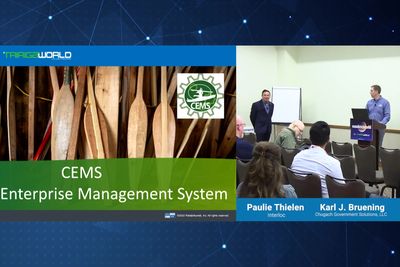
by Karl J. Bruening, Chugach Government Solutions, LLC and Paulie Thielen, Interloc Solutions
The Chugach Asset Management Program (ChAMP) is holistic approach to asset management. ChAMP standardized work practices are the foundation of this model and are designed to enable Chugach Government Solutions LLC to operate with greater efficiency than ever before. It serves as a centralized knowledge bank by ensuring important lessons are not only learned but are perpetually retained by the company. ChAMP is a key differentiator for its value creation properties, both for Chugach and Chugach’s valued clients, customers, and is a derivative of our company’s core behaviors.
ChAMP was built in alignment with the International Standard Organization (ISO) 550001 model for lifecycle asset management. As such, it combines business processes, codes, data conventions, best practices, and other documentation designed to standardize, improve and automate the company’s work processes, with special emphasis placed on the management of physical assets. ChAMP is a living program incorporating continuous improvement techniques to grow and improve through iteration, aligned with business goals and customer requirements.
Execution of ChAMP required researched and refined business processes and associated data governance standards to be delivered under the company’s CEMS (Chugach Enterprise Management System) initiative. Chugach selected Interloc Solutions’ Mobile Informer over Maximo Solution as our Enterprise Asset Management Solution (EAMS) program of record. This implementation has delivered Chugach a single technology solution that supports all enterprise Federal support contracts, treating each as a unique execution in itself, while allowing total enterprise visibility across several Programs, and Program Management Offices.
CEMS incorporates new asset and service reliability standards defined in ChAMP. In addition, CEMS has automated the procurement process and re-ordering of material, with key features, such as paperless procurement, and automated re-ordering.
The four (4) core principles of lifecycle asset management are:
- the creation of efficient business processes aligned with the company’s business objectives,
- making sound decisions obtained from reliable data and information,
- tracking and improving the performance of business processes, and
- standardizing the asset management body of knowledge and operating under a common language and culture across the entire organization.